Coping with Chaos by Categorizing
Excerpt from “Chaos Promotes Stereotyping,” by Philip Ball, Nature.com, April 7, 2011:
A study shows that messy surroundings also make people more likely to stereotype others.
Diederik Stapel and Siegwart Lindenberg, social scientists at Tilburg University in the Netherlands, asked subjects in messy or orderly everyday environments (a street and a railway station) to complete questionnaires that probed their judgements about certain social groups. They found small but significant and systematic differences in the responses: there was more stereotyping in the disorderly areas than the clean ones…
|
|
In one experiment, passers-by in the busy Utrecht railway station were asked to sit in a row of chairs and answer a questionnaire for the reward of a chocolate bar or an apple. The researchers took advantage of a cleaners' strike that had left the station dirty and litter-strewn to create their messy environment; they returned to do the same testing once the strike was over and the station was clean.
In the questionnaires, participants were asked to rate how much certain social groups — Muslims, homosexuals and Dutch people — conformed to qualities that formed part of positive and negative stereotypes, as well as qualities unrelated to stereotypes. For example, the 'positive' stereotypes for homosexuals were (creative, sweet), the 'negative' were (strange, feminine) and the neutral terms were (impatient, intelligent).
As well as probing these responses, the experiment examined unconscious negative responses to race. All the subjects were white, but when they were asked to sit down, one chair at the end of the row was already occupied by a black or white Dutch person. In the messy station, people sat on average further from the black person than the white one, whereas in the clean station there was no statistical difference…
Stapel and Lindenberg say that stereotyping may be an attempt to mentally compensate for mess: "a way to cope with chaos, a mental cleaning device" that partitions other people neatly into predefined categories.
See also: Broken Windows Theory

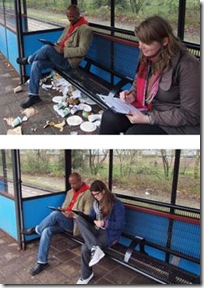 Study subjects sat further away from someone of another race when the train station was a mess.
Study subjects sat further away from someone of another race when the train station was a mess.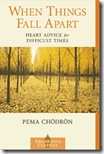 Fear is a universal experience. Even the smallest insect feels it. We wade in the tidal pools and put our finger near the soft, open bodies of sea anemones and they close up. Everything spontaneously does that. It’s not a terrible thing that we feel fear when faced with the unknown. It is part of being alive, something we all share. We react against the possibility of loneliness, of death, of not having anything to hold on to. Fear is a natural reaction to moving closer to the truth.
Fear is a universal experience. Even the smallest insect feels it. We wade in the tidal pools and put our finger near the soft, open bodies of sea anemones and they close up. Everything spontaneously does that. It’s not a terrible thing that we feel fear when faced with the unknown. It is part of being alive, something we all share. We react against the possibility of loneliness, of death, of not having anything to hold on to. Fear is a natural reaction to moving closer to the truth.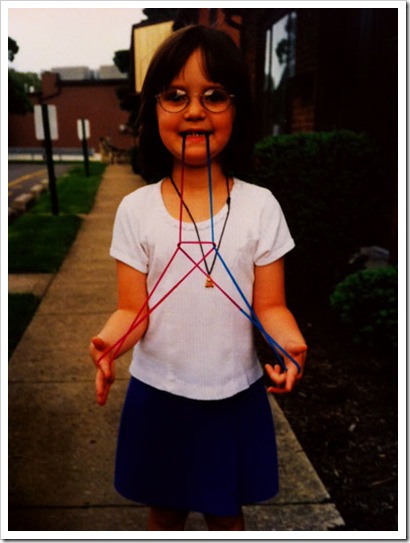

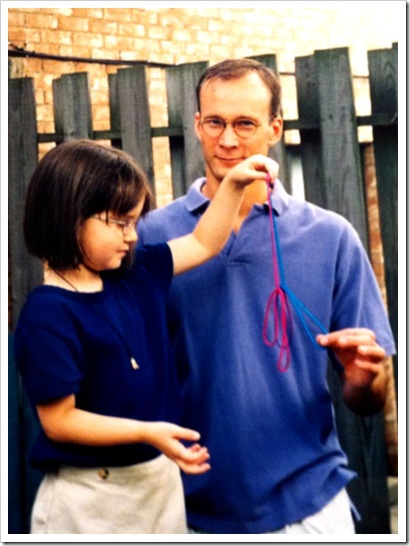



 Kneeling
Kneeling  I began to see a little more clearly what was going on. I'd had to let go of old ways of looking at things, some that I had learned in the course of my training, others going back much further to family patterns. The patterns became apparent. The function and purpose of the patterns also became apparent...
I began to see a little more clearly what was going on. I'd had to let go of old ways of looking at things, some that I had learned in the course of my training, others going back much further to family patterns. The patterns became apparent. The function and purpose of the patterns also became apparent...  Are you looking
Are you looking  Here, we investigate whether a group of experienced Buddhist meditators are better equipped to regulate emotional processes compared with controls during economic decision-making in the
Here, we investigate whether a group of experienced Buddhist meditators are better equipped to regulate emotional processes compared with controls during economic decision-making in the 
 "When I was 38, my best friend Pammy died, and we went shopping about two weeks before she died, and she was in a wig and a wheelchair. I was buying a dress for this boyfriend I was trying to impress, and I bought a tighter, shorter dress than I was used to. And I said to her, 'do you think this makes my hips look big?' and she said to me, so calmly, 'Anne, you don't have that kind of time.' And I think Easter has been about the resonance of that simple statement; and that when I stop, when I go into contemplation and meditation, when I breathe again and do the sacred action of plopping and hanging my head and being done with my own agenda, I hear that 'you don't have that kind of time,' you have time only to cultivate presence and authenticity and service, praying against all odds to get your sense of humor back."
"When I was 38, my best friend Pammy died, and we went shopping about two weeks before she died, and she was in a wig and a wheelchair. I was buying a dress for this boyfriend I was trying to impress, and I bought a tighter, shorter dress than I was used to. And I said to her, 'do you think this makes my hips look big?' and she said to me, so calmly, 'Anne, you don't have that kind of time.' And I think Easter has been about the resonance of that simple statement; and that when I stop, when I go into contemplation and meditation, when I breathe again and do the sacred action of plopping and hanging my head and being done with my own agenda, I hear that 'you don't have that kind of time,' you have time only to cultivate presence and authenticity and service, praying against all odds to get your sense of humor back." I can't breathe unless you're in my air.
I can't breathe unless you're in my air.  This is the nature of empathy, to think oneself into the minds of others. These are the mechanics of compassion: you are under the bedclothes, unable to sleep, and you are crouching in the brushed-steel lavatory at the rear of the plane, whispering a final message to your loved one. There is only that one thing to say, and you say it. All else is pointless. You have very little time before some holy fool, who believes in his place in eternity, kicks in the door, slaps your head and orders you back to your seat. 23C. Here is your seat belt. There is the magazine you were reading before it all began. . .
This is the nature of empathy, to think oneself into the minds of others. These are the mechanics of compassion: you are under the bedclothes, unable to sleep, and you are crouching in the brushed-steel lavatory at the rear of the plane, whispering a final message to your loved one. There is only that one thing to say, and you say it. All else is pointless. You have very little time before some holy fool, who believes in his place in eternity, kicks in the door, slaps your head and orders you back to your seat. 23C. Here is your seat belt. There is the magazine you were reading before it all began. . .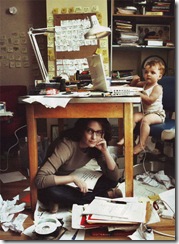 First, Lord: No tattoos. May neither Chinese symbol for truth nor Winnie-the-Pooh holding the FSU logo stain her tender haunches.
First, Lord: No tattoos. May neither Chinese symbol for truth nor Winnie-the-Pooh holding the FSU logo stain her tender haunches.
 My rules of life are there’s uncertainty, there’s pain and it requires constant effort. You can’t abrogate those rules. I don’t care how many Academy Awards you’ve won. I find the high lasts roughly 96 hours. After that, the person’s a little bit stunned because life is going on just as it was, they just can’t believe it. And once in a while, they’ll really crash badly. The principle isn’t a treatment for it. I just try to warn them in advance. If they get nominated, I put them in the army to prepare.
My rules of life are there’s uncertainty, there’s pain and it requires constant effort. You can’t abrogate those rules. I don’t care how many Academy Awards you’ve won. I find the high lasts roughly 96 hours. After that, the person’s a little bit stunned because life is going on just as it was, they just can’t believe it. And once in a while, they’ll really crash badly. The principle isn’t a treatment for it. I just try to warn them in advance. If they get nominated, I put them in the army to prepare. 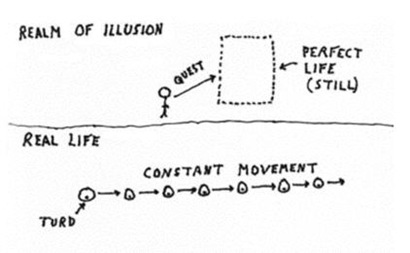
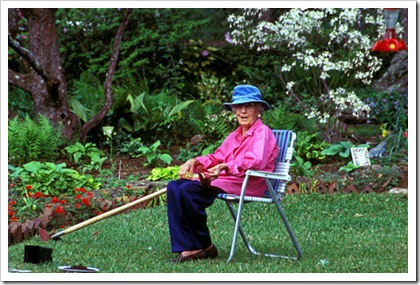

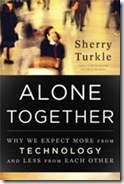 Krista Tippett (host): I'm utterly intrigued just by the way you describe your passion, your interest and concern, that you study this objective side of our encounters with technologies, that I'm concerned with— the human meaning of the objects of our lives. And just as we start, I wanted to ask you a kind of question I ask everyone, which is, was there a spiritual background to your childhood?
Krista Tippett (host): I'm utterly intrigued just by the way you describe your passion, your interest and concern, that you study this objective side of our encounters with technologies, that I'm concerned with— the human meaning of the objects of our lives. And just as we start, I wanted to ask you a kind of question I ask everyone, which is, was there a spiritual background to your childhood? 
 I have enough data from children who're going through this experience to know that it's a terrible moment for them. It's on the playground. Very bad when your child's on the jungle gym and is desperately trying to have you look at them, for them to be taking hands off the jungle gym to try to get your attention — accident time. I mean, be in the park. Be in the park with them. Spend less time there, but make it a space. Make it a moment. These are important moments.
I have enough data from children who're going through this experience to know that it's a terrible moment for them. It's on the playground. Very bad when your child's on the jungle gym and is desperately trying to have you look at them, for them to be taking hands off the jungle gym to try to get your attention — accident time. I mean, be in the park. Be in the park with them. Spend less time there, but make it a space. Make it a moment. These are important moments.



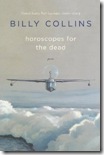 Every morning since you fell down on the face of the earth,
Every morning since you fell down on the face of the earth, 

 Traditions of deliberate attention to consciousness, and of making poems, are as old as humankind. Meditation looks inward, poetry holds forth. One is private, the other is out in the world. One enters the moment, the other shares it. But in practice it is never entirely clear which is doing which.
Traditions of deliberate attention to consciousness, and of making poems, are as old as humankind. Meditation looks inward, poetry holds forth. One is private, the other is out in the world. One enters the moment, the other shares it. But in practice it is never entirely clear which is doing which.  p schmidtt
p schmidtt




